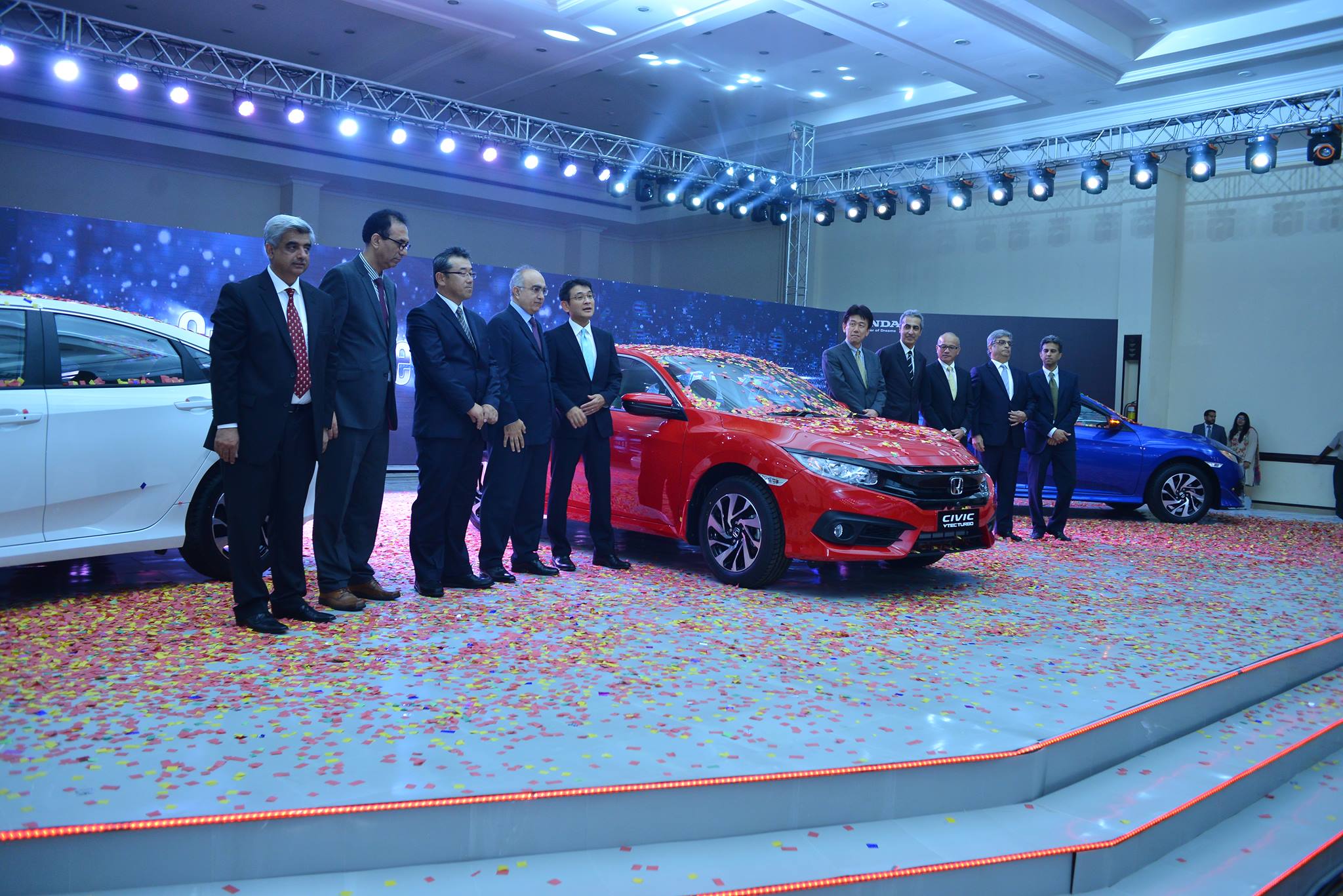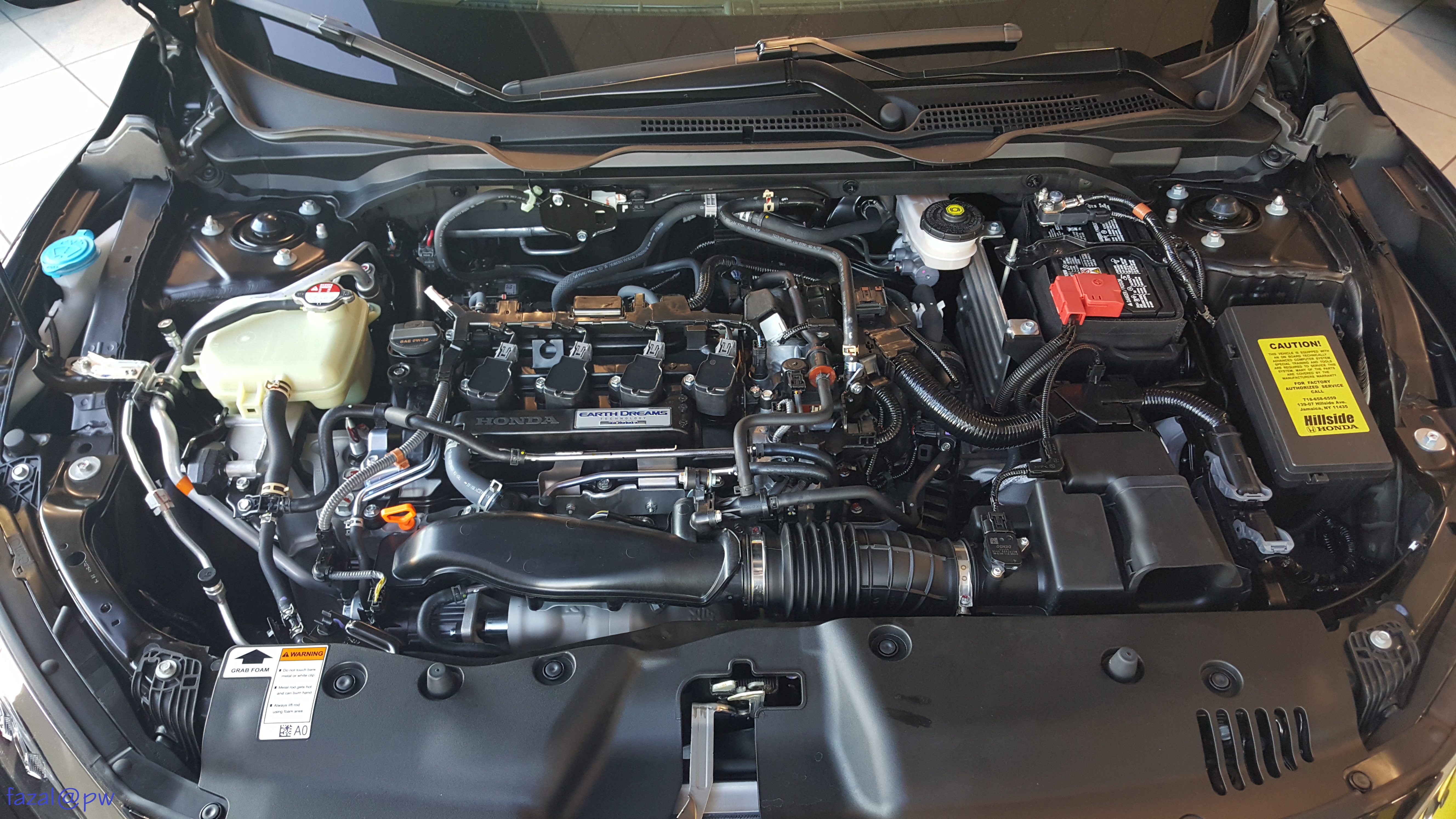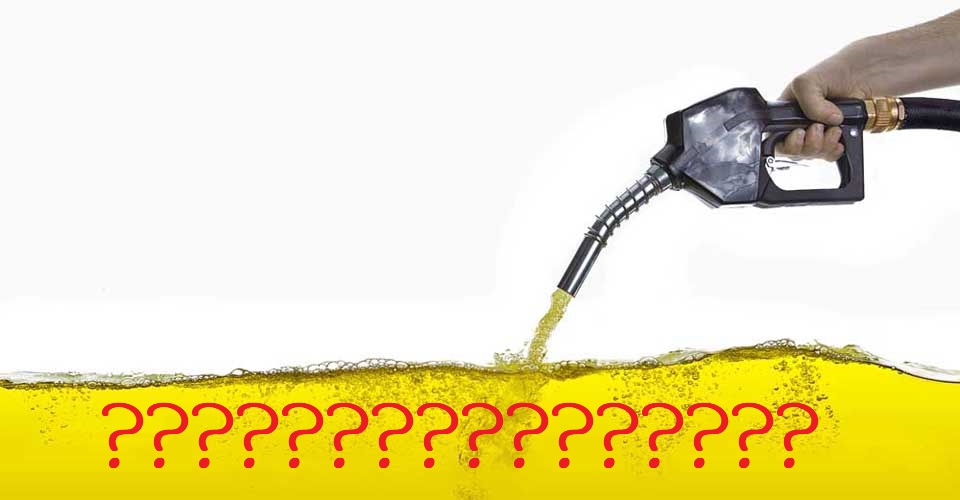Eureka! At last Honda Atlas Has Found Solution To Turbocharged Civic Engine Knocking
Honda Atlas Pakistan Limited “HAPL” has been on a serious roller coaster ride since last year. The most anticipated launch of the 10th generation Civic didn’t go well since the start. Questionable quality control initially was criticized. Back and forth launch of the same Honda City didn’t help either. Although HAPL was able to work on the exterior and interior quality control fit and finish, things didn’t stop there. But despite all this, profits jumped, and earnings per share reached almost Rs 43/- per share from RS 24.90 last year. The total profits after taxation stand above 6 Billion for the year ending 2017. The number was around 3.5 Billion last year, which means profits doubled within a year. Customers and Honda enthusiasts were not happy with all these happenings as Honda Atlas was always regarded as more technology and innovative companies in Pakistan and has better build products comparing Toyota or Suzuki.
RELATED: Honda Atlas Vs Oil Companies – High Level of Manganese in Petrol Damaging Engines
After few months into the production, news started to surface that 1.5T Civic owners are experiencing excessive engine knocking issues. There was extensive discussion about this matter on Pakwheels forum as well as social media and almost every other turbocharged Civic owner started reporting about a ticking/ knocking from the engine at acceleration. Car owners tried their level best and brought up this issue with dealerships as well as HAPL directly. At last, the management at HAP agreed to look into this matter, investigate and fix the issue. The issue spread so wide and extensive that Honda Atlas Pakistan Limited [HAPL] stopped taking any further bookings for 1.5T and dealership across the country suggested their customers to book 1.8L variant instead. Although HAPL never made any official announcement on this matter. Experts from overseas Honda Thailand [engines are imported from Honda Thailand for assembly in Pakistan] as well as Honda Japan visited Pakistan, and they investigated this matter, and a detailed testing was performed. So far and so fully assembled 1.5T Civic’s were shipped to Japan for testing and to investigate the knocking issue.
Just few days ago, HAPL has made an official complaint to Oil & Gas Regulatory Authority “OGRA”, that the percentage/quantity of the additive used to increase the octane rating which is typically a manganese based product and known as Methylcyclopentadienyl manganese tricarbonyl (MMT) appeared to be damaging to engines in its vehicles. According to HAPL in their official filed complaint, they have conducted tests, and it shows that manganese content is of up to 53 milligrams per kilogram. At above 24 mg/kg, it becomes dangerous not only for the engine and its components but also for the environment and human health. Honda has named three big oil companies in their complaint.
Although we still need to see the outcome of the official complaint filed by HAPL and any action on this matter by the government agency as well as any legal action taken by HAPL. The good news is that after about a year-long extensive testing, HAPL is now able to resolve the knocking issue in their turbocharged Civic. Fortunately, there is no engine, or other hardware that needs replacement. A simple software patch to electronic control unit “ECU” will resolve the persistent knocking issue. We have confirmed reports that dealers have tested the software patch on a number of vehicles across the country and for now the knocking from engine seems vanished. Also, Honda dealerships across the country have started contacting the owners of turbocharged Civic to get in touch with the dealerships immediately and make an appointment for this software update. The software patch named as “Countermeasures Knocking Fix Turbo” will take few minutes to update the control unit. Honda dealership will be officially launching an update campaign starting this coming week, starting November 6th.
I have been personally in touch with two such 1.5T civic turbo owners who were experiencing extremely bad knocking, and they both had software updates though two different dealerships. The knocking was quite loud between 2000-RPM to 3500-RPM. Both owners are now extremely happy and satisfied. According to them even after driving more than 60 kilometers and with hard acceleration they never experience any such knock which they heard for the last one year. Also, they never felt any difference in performance, acceleration or any turbo-lag after the update. I have no information on the technicalities of the software update as of now. We have to see as more and more owners share their experience after this update.
Let’s go back to basics and briefly understand what an engine knock is. Over the years car companies have started downsizing. Turbocharged engines are forced induction. To increase the performance and output of an ICE (internal combustion engine), air is compressed into the cylinder and its done by a turbine/turbo which is connected to the exhaust from the engine, and it spins with the force of exhaust gases and in return pumps air into the engine. A turbocharged engine can be smaller, but it can still produce equal or more power than a regular naturally aspirated engines. Turbocharged motors are fuel economical provided you drive them with a light foot. Driving them aggressively will make them more fuel thirsty than a bigger naturally aspirated engine
Petrol is a volatile fuel, and it can burn on its own under pressure. You keep reading and seeing the octane level. People think higher octane implies more engine power. But the fact, octane rating of petrol tells us about the stability of fuel against premature ignition under load that is compression in case of an engine. To get this resistance, oil refineries add various additives during the production of the fuel. We can say that higher the octane rating, more it can be compressed without ignition. As turbocharged engines have a much higher compression ratio. If you use low octane number than required in a turbocharged motor, the air-fuel mix can ignite prematurely in compression cycle before even spark plug comes into action. It causes the fuel mix to burn even before the spark plug ignition. And this is what is called knocking. Knock is simply an abnormal combustion process and all it becomes more pronounced in forced induction/ turbocharged engine if the low quality or fuel with less octane number is fed into the engine. Knock is dangerous phenomena and can damage the engine if it remains in effect for a long period of time. Knock can also happen due to worn our spark plugs.
The countermeasures to knock is a part of an engine design. There are knock sensors which measure the vibration, and if a certain frequency is detected, the sensors send data to ECU which in return recalculate and adjusts the ignition timings, mostly retarding that is delaying the spark plug timing. Readjustment of air-fuel ratio, means enriching it with more fuel can also fix the knock but it’s not desirable as more fuel will burn and will only result in less fuel economy and increased emissions. Please keep in mind that the designed countermeasures to the knock are part of engine design to overcome the certain degree of anticipated knock which can happen. These builtin measures can handle a knock to a certain threshold. Improper fuel, worn out spark plugs, carbon deposits will only make knock worse overtime and beyond ECU capability to overcome.
In case of Turbo Civic, “Countermeasures Knocking Fix Turbo” Software patch might have further retarded the timing or readjusted AFR [air-fuel ratio] to the required degree where the knock does not happen. Does this patch resulted in the loss of peak power which is 174hp as per specification or does it effected the fuel economy are the questions need answers? I have been told by few Civic turbo owners that they will get the car on the dyno after the update and share results.
What I personally feel that fuel is the main culprit for this knock to happen in the Pakistan domestic model Turbo Civic and not any design flaw with the engine. Many people reported that intensity of this knock varied when fuel was used from different pumps, different brands. Also, the recent official complaint filed by Honda with OGRA further fuels the fuel theory that quality of petrol is the only reason for the knocking their customers are experiencing in their turbocharged Civic.
Now what I have difficulty to understand is that, although Honda found a solution to the knocking issue, the main culprit which is the petrol still remains the same with a reported questionable quality and a higher percentage of additives as per Honda’s own complaint as well. I am also told by the two owners whose cars are fixed that the dealership never said anything as far as what fuel to use or what brand fuel to use. Obviously by launching a complaint against fuel companies and now it’s all over the media, Honda Atlas left it to ownership to decide what fuel to use and from which fuel pump. At least by launching a complaint, Honda Atlas found a safe ground incase in future same knocking appears, or customers come back with a different problem associated with questionable fuel.
Knocking is/was the one main issue the civic owners were experiencing as its audible to ears, what is happening to many other engine components including emission systems which will get damage prematurely and not even visible to naked eye and all hidden and we will only know about it over time when the damage is done, if same questionable fuel is pumped . I understand that knocking will be fixed with the software update but what about the damage if already happened to the engine components especially cylinders as the fix came almost a year after the knocking was reported by turbocharged Civic owners. Such owners have been driving these cars with knocking as no fix was available.
Will Honda entertain warranty claims for damage to these components prematurely?
Should we say that Honda Atlas lacked proper extensive research on their end? Shouldn’t they have tested the fuel before launching the Turbo Civic? If software patch was a solution to this problem, why it took so long, that is almost a year. Does Honda Atlas lack proper research and development on their part. Does Honda Atlas Pakistan lack state of the art R&D department even after making billions in profits? is everyone asking at this time. Will Honda Atlas pursue the complaint they filed, or everything is just an eyewash , is something time will tell? I hope OGRA looks into this complaint filed by Honda Atlas Pakistan Limited, and an expert panel should investigate this matter, and the public should be informed about its findings. The excessive use of the additive is not only harming human health but also adversely affecting vehicles. I hope a resolution on this matter is reached as soon as possible and all owners with knocking issues with their turbocharged civics are entertained with their claims.
Overall I believe that the patch will not only help resolve the engine knocking but will also patch the stress, the rough and tough time the owners experienced for quite some time. No wonder if you pay more than 3 million for a car, you expect a stress-free and enjoyable ride. After all, its extremely good news for the current Civic owners, as well as all those people who wished to buy turbo Civic but ongoing issues, left them with no option other than to wait for a fix or stay away from Honda products altogether and switched to competition. I hope, and I can guess that Honda Atlas will soon be opening the halted production of their top of the line most wanted model; “The Turbo Civic.”
Readers are advised to contact their local Honda dealers if they are experiencing a knocking issue with their Turbocharged Civic and discuss the “Countermeasures Knocking Fix Turbo.”
Discuss story at Pakwheels.com/Civic



